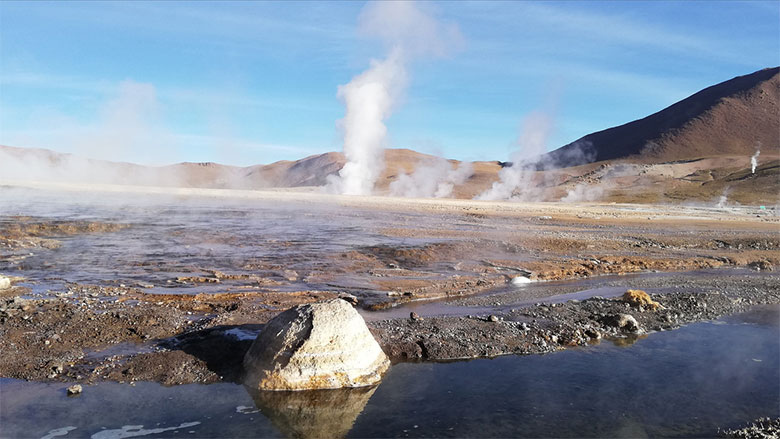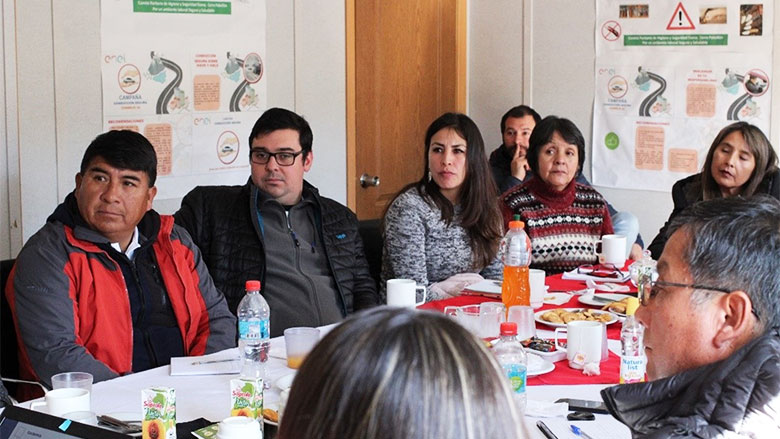In northern Chile, 3,600 meters above sea level and almost four hours from the nearest city of Arica, Janet Gómez Mamani tends to livestock on her farm. The Indigenous Aymara woman treats the land she farms as belonging to mother earth, rather than as her own, a belief of the Aymara cosmovision, an ancient belief system.
Beneath the earth, at Gómez Mamani’s feet, there remains untapped geothermal energy resources which could generate continuous clean electricity. Across Latin American and the Caribbean, there is an estimated 11 to 55 GW of geothermal resource potential just for power generation alone. This could play a key role in mitigating the impacts of climate change as droughts increasingly hinder hydropower production in the region, but also to assist in meeting the energy needs of the population.
Nonetheless, there have been various challenges slowing down geothermal development in Chile, one of which was a lack of knowledge about its potential and limited buy-in from Indigenous locals like Gómez Mamani. Misperceptions about the potential impacts were common, and since most areas with geothermal resource potential are in Indigenous Peoples’ territories, there was a need for early communication with the Government and other stakeholders regarding the development of these natural resources.
For over four years, the World Bank has been assisting the government of Chile through the Technical Assistance for Geothermal Development in Chile Project, financed by a Clean Technology Fund grant. The aim is to improve geothermal energy market conditions by removing barriers to their development, including ones related to regulatory matters and social and environmental aspects. One important subcomponent of this project is stakeholder engagement, raising awareness about the impacts and benefits of geothermal energy development.
Well in advance of the start of the exploration stages of geothermal development, training workshops organized by the Ministry of Energy and University of Chile revealed that there was a lack of knowledge around what geothermal energy really is. A total of more than 400 Indigenous leaders and community members from 6 groups – Aymara, Quechua, Diaguita, Colla, Mapuche, and Pueblos Australes – participated in the 15 workshops.
“We have to advance economically, but it is good to communicate with native peoples because otherwise they [the government] are mistrusted,” says Gómez Mamani.
During consultations, it became apparent many thought geothermal energy was equivalent to large-scale mining, and this misperception was gradually clarified as knowledge was shared. The direct uses of geothermal energy were made more visible, including ways in which geothermal resource development can contribute to community development, improve quality of life, and serve as an alternative to firewood.
Key to engaging and informing citizens like Gómez Mamani were informational materials and visits to geothermal projects. Two technological tours were held with Indigenous leaders, one to Nicaragua, and a second one to the Cerro Pabellón geothermal power plant in Chile.
Gómez Mamani participated to better understand the resource. At the workshop she attended prior to the technological tour, she was presented with brochures about geothermal energy which focused on Indigenous Peoples’ worldview of “the heat of the earth”.
"The earth is alive, it has energy,” she says, knowing now that it is linked with geysers and hot springs.


